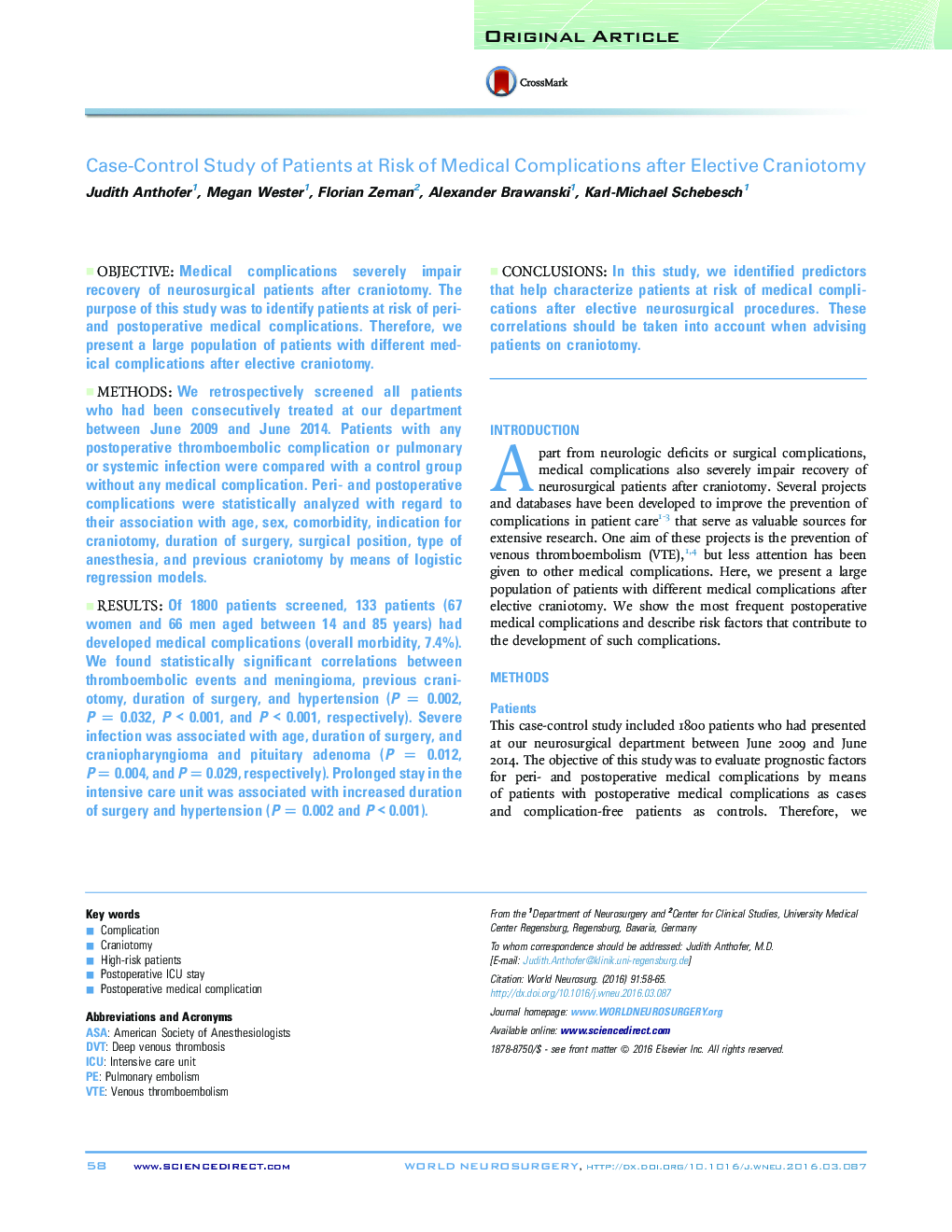| Article ID | Journal | Published Year | Pages | File Type |
|---|---|---|---|---|
| 3094527 | World Neurosurgery | 2016 | 8 Pages |
ObjectiveMedical complications severely impair recovery of neurosurgical patients after craniotomy. The purpose of this study was to identify patients at risk of peri- and postoperative medical complications. Therefore, we present a large population of patients with different medical complications after elective craniotomy.MethodsWe retrospectively screened all patients who had been consecutively treated at our department between June 2009 and June 2014. Patients with any postoperative thromboembolic complication or pulmonary or systemic infection were compared with a control group without any medical complication. Peri- and postoperative complications were statistically analyzed with regard to their association with age, sex, comorbidity, indication for craniotomy, duration of surgery, surgical position, type of anesthesia, and previous craniotomy by means of logistic regression models.ResultsOf 1800 patients screened, 133 patients (67 women and 66 men aged between 14 and 85 years) had developed medical complications (overall morbidity, 7.4%). We found statistically significant correlations between thromboembolic events and meningioma, previous craniotomy, duration of surgery, and hypertension (P = 0.002, P = 0.032, P < 0.001, and P < 0.001, respectively). Severe infection was associated with age, duration of surgery, and craniopharyngioma and pituitary adenoma (P = 0.012, P = 0.004, and P = 0.029, respectively). Prolonged stay in the intensive care unit was associated with increased duration of surgery and hypertension (P = 0.002 and P < 0.001).ConclusionsIn this study, we identified predictors that help characterize patients at risk of medical complications after elective neurosurgical procedures. These correlations should be taken into account when advising patients on craniotomy.
